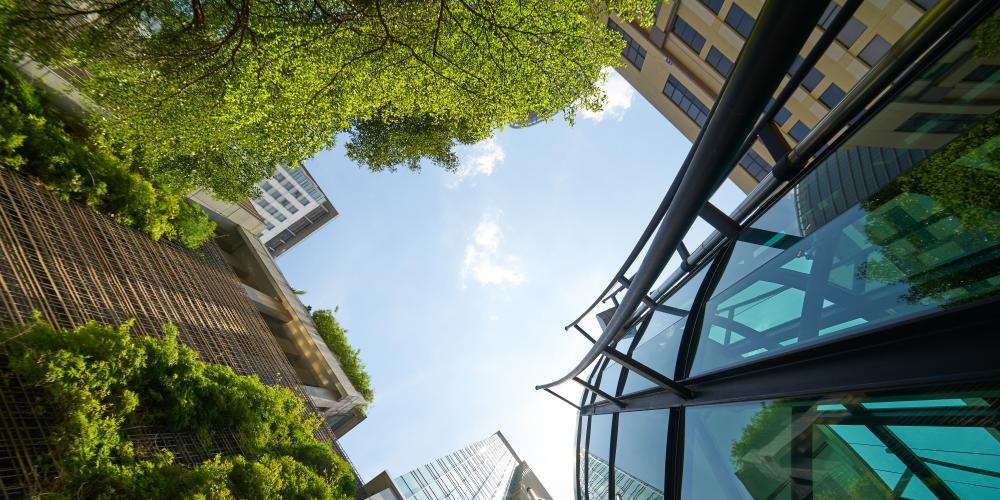
Integration of natural capital in public and private sector decision making for climate resilience and biodiversity - in collaboration with the We Value Nature campaign
Nature is essential to the future of the planet, but natural resources are being used up faster than the Earth can replace them. Through understanding and considering the risks and opportunities created by nature, businesses can make better decisions that benefit themselves, society and the planet as a whole.
We Value Nature is an EU Horizon 2020 three-year campaign that seeks to boost uptake of the use of natural thinking, natural capital accounting, nature-based solutions and green infrastructure by businesses across Europe to make valuing nature the new normal. These approaches can contribute substantially to a sustainable and resilient economy, which is crucial in the context of the current ecological and climate crisis where environmental risks continue to dominate the global business and economic agenda.
Considering the growing risk of climate change and natural disasters, there is a clear sense of urgency to integrate nature into the decision-making processes of the public and private sector accelerating the mainstreaming through different approaches such as natural capital assessment, natural capital accounting (NCA), Nature-based Solutions (NbS), Green infrastructure (GI) and ecosystem-based approaches.
In order to encourage governments to take comprehensive action to reverse nature loss and restore the planet’s vital natural systems, the business community has a critical role to play in demonstrating that the safeguarding of nature makes economic sense, also in identifying the policies and mechanisms needed for global systemic and transformative change. To foster a sense of shared ownership over the agreements and outcomes, the private and public sector can benefit from pursuing joint action.
We Value Nature is currently carrying out together with Ecoacsa a pilot project to identify opportunities to strengthen collaboration between the public and private sector through assessing the options, benefits and best practices of protecting nature, enhancing the functions of ecosystems and restoring degraded land in a specific nature area in the Mediterranean area, Cabo de Gata-Níjar (Andalusia, Spain), by reinforcing the integration of natural capital in decision-making processes.
To identify different natural capital approaches that benefit local stakeholders from public and private sectors and society In order to achieve this, we are searching for case studies that demonstrate successful actions for valuation of natural capital, ecosystem restoration, nature conservation and the effective integration of ecosystem services approaches in decision-making. The case studies will be assessed and the most successful ones in terms of demonstrated leadership and results will be compiled into a publication of best practices to support interested public and private sector stakeholders to learn and replicate these actions. Case studies that could be eligible should come from ecotourism sector, eco-agriculture, and agroforestry.
Assessment of case studies
Eligible projects must have been carried out in similar ecoregions or in the proximity to the pilot area (in Spain or in other countries in the Mediterranean area or other places in the world with similar conditions) facing similar ecosystem related challenges as the Cabo de Gata-Níjar nature reserve.
In order to have an overview of the pilot area, a brief description of the main characteristics of the Cabo de Gata region is provided:
- Located in a dry and semi-arid habitat in the Mediterranean coastal protected area (in the stream southeast of the Iberian Peninsula in the most arid part of Europe).
- Extension: it covers 46,000 hectares, of which 12,000 hectares are in the marine zone to a depth of 60 meters.
- Arid climate (conditioned by the proximity of the Sahara Desert and the influence during most of the year of the Azores anticyclone).
- Low precipitation rain (rainfall below 200 mm a year).
- Average yearly temperature between 15-22 °C.
- Abundance of semi-arid plant formations with fan palms.
- Together with numerous endemic species specific to the zone are many other species characteristics of Saharan flora.
- In this area there could be found different protected species (fauna & flora).
- Intensive greenhouse agriculture and increasingly, the tourism and tertiary sector.
- Protection classifications: Maritime and Terrestrial Natural Park, Specially Protected Bird Area (SPBA), Internationally Important Wetland (Ramsar Convention), Geopark, Specially Protected Area of Importance for the Mediterranean (SPAIM)
Selected projects will be assessed according to objectives, scope, level of ambition, impacts, and dependencies on natural capital, valuation (qualitative, quantitative, and monetary), lessons learnt, project funding, and integration in the decision-making process.
- We Value Nature will profile projects that demonstrate how fostering a mutual understanding of the different approaches to landscape restoration and collaboration and integration of natural capital in decision making and practice can enhance benefits for all stakeholders from public and private sectors and society. The focus will be on showcasing a variety of natural capital approaches that benefit local stakeholders from the public and private sector and that offer potential for replication and new partnerships between key stakeholders.
- The selected projects will be included in a final report, which will be publicly available and presented in different relevant workshops and meetings in Europe.
- All case studies proceeding from the open call that are not finally selected will be included in a specific annex to the final report. It will consist of a list of case studies and proposed uptake as a natural capital case studies, in case they fulfil the requirements.
How to submit your case study?
Provide a short description of the project and the natural capital approaches developed including objectives, impacts and lessons learnt. This information can be shared on the basis of existing project documentation or via links to online information.
Please submit your case study by email to jesuscarraco@ecoacsa.com by the 3rd of April 2020
Successful case studies to be profiled by We Value Nature will be notified before end of April 2020
